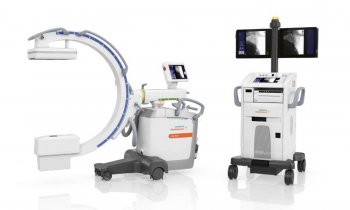Treating obesity surgically
Promising results and a promising outlook
Professor Rudolf A Weiner, head of the surgical department at Sachsenhausen Hospital, Germany, reports that some developing procedures result not only result in weight loss but also in the systematic elimination of metabolic disorders, and that many new developments in the field promise hope for both the obese and their doctors

“Obesity as a disease is rapidly increasing across all continents, with the exception of Africa. Not only is the average weight of the population in industrialised nations rising, but the problem of obesity has also risen swiftly in emerging nations during the last few decades. The number of morbidly obese, particularly amongst children and adolescents, is on a steep increase. Therefore, a further increase in obesity and morbid obesity over the next few decades is already pre-programmed. Follow-on diseases, such as Diabetes mellitus, present healthcare systems with huge economic problems in the long term. So far, there have not been any comprehensive and satisfactory approaches to obesity prevention. Whereas airlines and the clothing industry are slowly beginning to address the problem, hospitals are completely unprepared. There are currently hardly any hospital beds, operating theatres and toilets that consider the growing weight of patients. The shocking tendency towards rapid weight gain, and the fact that conservative approaches to therapy have largely resulted in no success, mean that for many of those affected surgical intervention is currently the only effective solution. Thanks to the introduction of minimally invasive surgical procedures and the standardisation of operating procedures, including comprehensive pre-and aftercare programmes, the horror of obesity surgery has made way for safer treatment. However, surgical intervention alone is not the be all and end all. Only a selective, patient oriented choice of surgical procedure, as well as an operation prepared, standardised and carried out in the best possible way, with life-long aftercare, will guarantee long term success.
With restrictive procedures that limit a patient’s capacity to eat solid foods, in the long run the active participation of patients is a prerequisite for successful weight reduction. Malabsorptive procedures, which limit the absorption of fat as the main energy, again require the active participation of the affected patients with lifelong supplementation as a prerequisite for the avoidance of long-term damage, which can arise from a lack of individual trace elements, vitamins and proteins.
The risks and side effects for individual patients are largely outweighed by the advantages through the decrease of co-morbidity. When concomitant diseases and follow-on diseases of obesity, such as Diabetes mellitus, arterial hypertonus, dyslipidaemia and sleep apnoea, independent of the surgical procedure, can be improved or cured in 80% of cases, then the benefit for the individual patient, as well as the economic benefit, can no longer be disputed. All aspects of individual quality of life, ranging from psychological factors to social circumstances and lust for life, have been proven to increase within only the first year after the operation.
However, it must be said that generally obesity surgery offers no solution to the overall problem of developing obesity in the industrialised countries. It remains an individual therapeutic approach that can normalise the affected patient’s life and liberate him from concomitant diseases, all with his participation. Obesity surgery or metabolic surgery, respectively offer extremely obese patients who suffer, for example, Diabetes mellitus Type II, and their doctors a perspective, an effective way out of the vicious circle of constantly having to adapt the insulin dose to the increasing weight gain.
Innovations in metabolic therapy through specialised surgical interventions go far beyond obesity surgery. Some of the procedures currently under development result not only in weight loss but also in the systematic elimination of metabolic disorders. We can expect a lot of new developments in this area, which will give hope to patients and doctors alike.
01.05.2009










